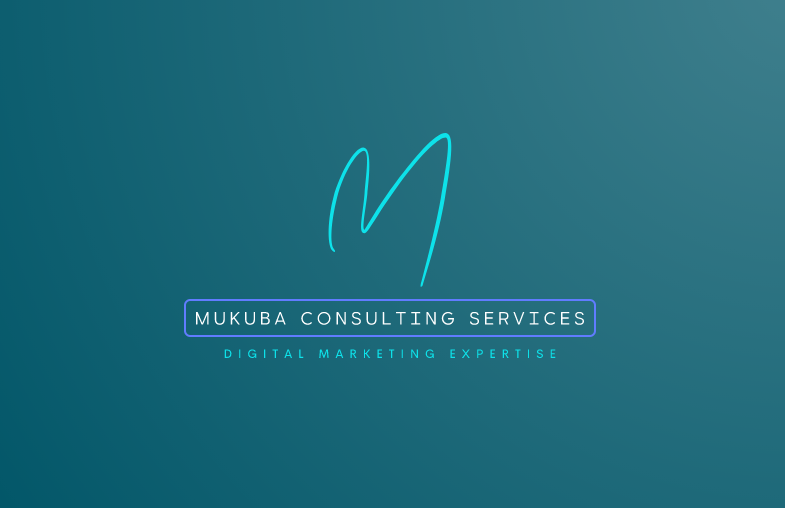In today’s digital age, online advertising has become a crucial tool for businesses looking to increase their online presence and reach their target audience.
Tourism agencies, in particular, can benefit greatly from using Google Ads to promote their services and attract potential customers.
At its core, Google Ads is a pay-per-click (PPC) advertising platform that allows businesses to create and display ads to users who are actively searching for relevant keywords on Google.
The platform offers a range of targeting options and ad formats, making it an ideal choice for businesses in the tourism industry.
In this article, we will provide a comprehensive guide on how to use Google Ads for tourism agencies, covering everything from account setup to campaign optimization and best practices. Let’s get started.
Account Setup and Structure

Before you can start creating ads, you’ll need to set up a Google Ads account.
When setting up a Google Ads account for a tourism agency, it’s important to follow a structured approach to ensure that your campaigns are effective and efficient. Here are some key steps to consider:
- Set up your account: To get started, you’ll need to create a Google Ads account if you haven’t already done so. This can be done by visiting the Google Ads homepage and following the instructions provided. Once your account is set up, you can start creating your campaigns.
- Choose your campaign type: Google Ads offers several different campaign types, including Search, Display, Video, Shopping, and App. For a tourism agency, the Search and Display campaigns are likely the most relevant options. The Search campaign allows you to show text ads to users who are searching for specific keywords, while the Display campaign allows you to show image and video ads on websites and apps that are part of the Google Display Network.
- Set your campaign goals: Before you create your campaigns, it’s important to set your goals. This could include increasing website traffic, generating more leads, or increasing conversions. Setting your goals will help you create campaigns that are aligned with your business objectives.
- Create your ad groups: Ad groups are a way to organize your ads and keywords within a campaign. For a tourism agency, you may want to create ad groups based on different categories such as “beach vacations,” “adventure tours,” or “cultural experiences.” This will help you create targeted ads and ensure that your keywords are relevant to your ads.
- Write your ads: When writing your ads, it’s important to keep them concise and compelling. Your ad should include a clear call-to-action and highlight the unique selling points of your business. You may also want to use ad extensions to provide additional information such as your phone number or a link to a specific page on your website.
- Choose your keywords: Keywords are the search terms that you want your ads to show for. It’s important to choose relevant keywords that are likely to be used by users who are interested in your services. You may also want to use negative keywords to exclude irrelevant search terms.
- Set your budget: Finally, you’ll need to set your budget for your campaigns. This can be done on a daily or monthly basis, and you can choose how much you want to spend on each campaign. It’s important to set a budget that is aligned with your goals and that allows you to achieve a positive return on investment.
With this information, you can create a well-structured Google Ads account that is aligned with your business objectives and that drives results for your tourism agency.
Keyword Research and Selection

Keyword research is an essential part of any Google Ads campaign. It involves identifying the keywords and phrases that are most relevant to your business and target audience, and incorporating them into your ad campaigns.
Let’s look at some of the things to look out for and consider when doing keyword research:
Understand your audience
Before you start researching keywords, it’s important to understand your audience and what they are searching for.
What are their interests, needs, and pain points? What keywords are they likely to use when searching for travel options?
Understanding your audience will help you identify the most relevant and effective keywords for your campaigns.
Brainstorm keywords
Once you have a good understanding of your audience, it’s time to start brainstorming keywords.
Think about the products and services you offer, as well as the destinations you promote.
Make a list of all the potential keywords that come to mind, including general terms, specific phrases, and long-tail keywords.
Use keyword tools
There are several keyword research tools available that can help you identify the most relevant and effective keywords for your campaigns.
Some popular tools include Google’s Keyword Planner, SEMrush, and Ahrefs. These tools can help you identify search volumes, competition levels, and related keywords.
Choose relevant keywords
When selecting your keywords, it’s important to choose ones that are relevant to your business and your audience.
Avoid choosing generic keywords that are too broad or competitive, as these are likely to be more expensive and less effective. Instead, focus on specific keywords that are more likely to drive relevant traffic to your website.
Use match types
Google Ads offers several different keyword match types, including broad match, phrase match, and exact match.
These match types determine how closely a user’s search query must match your chosen keyword in order for your ad to be shown. Broad match keywords will match to a wider range of search queries, while exact match keywords will only match to the exact search query.
It’s important to use a combination of match types to ensure that your ads are being shown to the right audience.
Monitor and adjust
Once you’ve launched your campaigns, it’s important to monitor your keywords and make adjustments as necessary.
This could include adding or removing keywords, adjusting match types, or changing your bids. By monitoring your campaigns regularly, you can ensure that your keywords are performing effectively and that you’re getting the most out of your ad spend.
Ad Creation and Optimization

Once you’ve set up your campaign structure and selected your keywords, it’s time to create your ads. Google Ads offers a range of ad formats, including text ads, image ads, and video ads.
When creating your ads for your tourism agency, it’s important to keep in mind your target audience and the messaging that will resonate with them. Your ads should highlight the unique value proposition of your business and include a strong call to action that encourages users to click through to your website.
Here are some key aspects:
Ad creation
When creating your ads, it’s important to follow Google’s ad guidelines and best practices. Your ads should be relevant to the keywords you’re targeting and the landing page you’re sending users to.
Use a clear and concise headline that includes your main keyword, and use ad extensions such as site links, callouts, and structured snippets to provide additional information about your business.
Ad testing
Once you’ve created your ads, it’s important to test them to see which ones perform best.
You can test different variations of your ad copy, headlines, and ad extensions to see which combinations drive the most clicks and conversions.
Use Google’s ad rotation settings to evenly rotate your ads and ensure that each variation is shown equally.
Ad optimization:
Once you’ve identified your top-performing ads, it’s important to optimize them to improve their performance.
This could include adjusting your ad copy or headlines to make them more compelling, adding or removing ad extensions, or adjusting your bids to ensure that your ads are being shown in the most effective positions.
Landing pages
It’s important to ensure that your landing pages are relevant to your ads and provide a clear and compelling call to action.
Your landing pages should be optimized for both relevance and user experience, with clear and concise content, easy navigation, and a clear call to action.
Quality score
Google uses a quality score to determine the relevance and effectiveness of your ads and landing pages.
Your quality score is determined by factors such as click-through rate, ad relevance, and landing page experience.
By optimizing your ads and landing pages for relevance and user experience, you can improve your quality score and increase the effectiveness of your campaigns.
Ad tracking
It’s important to track the performance of your ads and landing pages to see how they’re performing and make adjustments as necessary.
Use Google’s conversion tracking to track conversions such as bookings or inquiries, and use Google Analytics to track user behaviour on your website.
By monitoring your campaigns and making data-driven decisions, you can ensure that your ads are driving results for your tourism agency.
Conversion Tracking and Optimization

Conversion tracking is the process of tracking user actions on your website after they click on your ads. This can include actions such as making a booking, filling out a form, or signing up for a newsletter.
Conversion tracking and optimization is a crucial aspect of Google Ads for tourism agencies. Here are some ways to do so:
Setting up conversion tracking
The first step in conversion tracking is to set up conversion tracking in your Google Ads account.
You can set up different types of conversions, such as:
- form submissions,
- phone calls,
- Bookings.
You will need to add a code to your website to track these conversions.
Identifying conversion actions
The next step is to identify the actions on your website that you want to track as conversions.
These may include booking confirmations, form submissions, phone calls, or other actions that are valuable to your tourism agency.
Tracking conversion data
Once you have set up conversion tracking and identified your conversion actions, you can track conversion data in your Google Ads account.
This will show you which campaigns, ad groups, and keywords are driving the most conversions, and which ones may need optimization.
Optimizing for conversions
With conversion data in hand, you can optimize your Google Ads campaigns to improve your conversion rates.
This may include optimizing your ad copy, targeting, and bidding strategies to drive more qualified traffic to your website.
You may also want to improve your landing pages to provide a better user experience and increase the likelihood of conversions.
Testing and refinement
As with ad creation and optimization, it’s important to test different strategies and refine your approach based on the data you gather.
This may involve testing different ad variations, landing pages, or targeting strategies to see which ones perform best.
Continuous improvement
Conversion tracking and optimization is an ongoing process, and it’s important to continually monitor and adjust your campaigns based on the data you gather.
By monitoring your campaigns and making data-driven decisions, you can ensure that your Google Ads campaigns are driving the best possible results for your tourism agency.
By following these steps, you can effectively set up conversion tracking and optimize your Google Ads campaigns to drive more bookings, inquiries, and other valuable actions for your tourism agency.
Best Practices for Google Ads in Tourism

To maximize the effectiveness of your Google Ads campaigns, there are several best practices that you should keep in order to outrank other websites on Google.
Use location targeting
Location targeting is a powerful tool that can help tourism agencies reach potential customers in specific geographic regions.
By targeting your ads to users in the regions where you operate, you can ensure that your ads are only shown to users who are likely to be interested in your services.
This can help increase your click-through rate (CTR) and conversion rate.
Use ad extensions
Ad extensions are additional pieces of information that can be added to your ads to provide users with more context about your business.
Examples of ad extensions include call extensions, which allow users to call your business directly from the ad, and sitelink extensions, which provide links to specific pages on your website.
By using ad extensions, you can make your ads more informative and compelling, which can help increase your CTR and conversion rate.
Use negative keywords
Negative keywords are words or phrases that you don’t want your ads to show for. For example, if you’re a luxury tourism agency, you may want to exclude keywords like “budget” or “cheap.”
By using negative keywords, you can ensure that your ads are only shown to users who are likely to be interested in your services, which can help increase your CTR and conversion rate.
Use remarketing
Remarketing is a powerful tool that allows you to show ads to users who have previously visited your website.
By targeting users who have already shown an interest in your business, you can increase your chances of converting them into customers.
Remarketing can also help increase brand awareness and loyalty by keeping your business top of mind for users who have previously engaged with your brand.
Monitor and optimize your campaigns regularly
Google Ads is a dynamic platform that requires regular monitoring and optimization to achieve the best results. By regularly reviewing your campaign performance, testing different ad variations, and making data-driven decisions about how to optimize your campaigns, you can ensure that your ads are always performing at their best.
Conclusion
In conclusion, Google Ads is a powerful tool for tourism agencies looking to increase their online visibility and attract potential customers.
By following the best practices outlined in this article, you can create effective ad campaigns that reach your target audience and drive conversions.
Remember to regularly monitor and optimize your campaigns to ensure that they are always performing at their best. With the right strategy and execution, Google Ads can be a game-changer for your tourism business.



